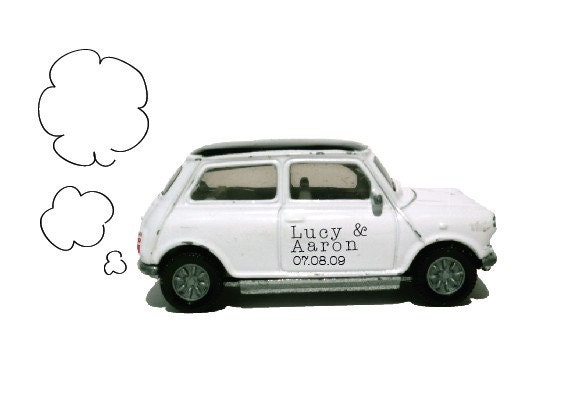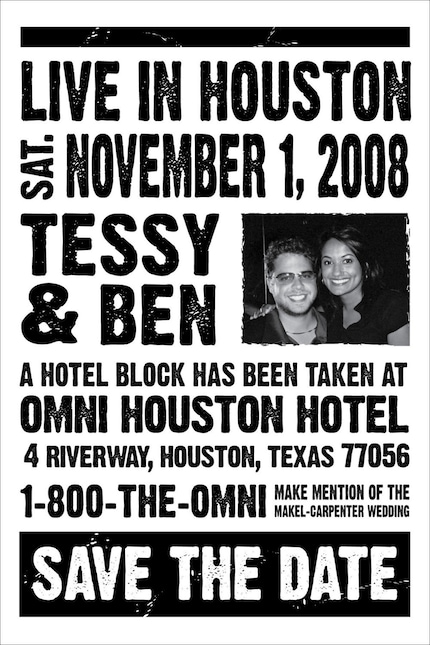"Yo, que me figuraba el Paraíso bajo la especie de una biblioteca . . . ."
- Jorge Luis Borges
[A picture of one of my bookshelves (and probably the inside of my brain): wedding books and mags on the top shelf,
critical theory texts on the bottom shelves.]
When I first emigrated from Hong Kong at the age of 8, I was a shy kid with limited English skills and a bowl cut. So when normal kids were out on the playground, I was hanging out in the Bookmobile or the library, getting acquainted with my fictional friends like The Babysitters Club or Nancy Drew. To this day, I'm still a bookworm -- um, I mean bookbee. In fact, I've managed to make my awkward phase into a profession; now that I'm a doctoral student in English, I get to read books for a living.

I knew this book and I were going to be good friends as soon as I saw the tag line on the cover: "The book the wedding industry does NOT want you to read." The wedding industry doesn't want you to read it because its 450+ pages give you advice, practical tips, and important details on how to plan an expensive-looking wedding on the cheap (or relatively cheap, anyway). It exposes a lot of the games that wedding vendors play in order to get you to spend spend spend (and to stress stress stress). For example, I was annoyed by bridal boutiques that ripped the labels off their gowns to keep you from knowing the designer, style number, and fabric (and thus to keep you from comparison shopping). But I had no idea until the Fields told me that it was illegal for them to do this. (Law nerd that I am, I
checked. It is.) Or I knew that bridal boutiques made money from the sale of accessories, like shoes, veils, and undergarments. But I had no idea how much of a mark-up (HUGE) they put on those items and how much cheaper they would be online or at non-bridal-specific stores.
A lot of the information that the Fields provide will make you angry, but theirs is no mere muckraking expose of the wedding industry. Rather, they fill their book with lots of good practical advice on how to beat the industry at its own game. For example, the bridesmaid gown chapter not only gives you suggestions on what to look for in a quality gown, tips on how to save money on bridesmaids gowns and accessories, and questions to ask of a boutique, it also reviews various stores and websites where you might find affordable gowns and rates the quality, value, and fashionableness of the thirty leading gown manufacturers. It even gives you the contact info for fabric manufacturers in case you want to DIY. And they do this for every aspect of the wedding planning process, from the purchase of the wedding gown to the selection of invitations to the booking of a honeymoon.
Thus far, I've used this book to research discount wedding and bridesmaid dresses, wholesale cake decorations, and florals. I've also used the lists it provides of questions to ask various vendors, from caterers to videographers. I'm pretty web-savvy, so it's possible that I would have found many of the sites listed in the book on my own. But the reviews and ratings in the book are priceless, as is the convenience of having the research done for you.
At
$10.17 on Amazon, this book is probably the best investment (not to mention the cheapest) I made for my wedding. And it even comes with a money back guarantee: "If
Bridal Bargains doesn't save you at least $500 on your wedding," the Fields promise, "we will give you a complete refund." Schweeeeet! I give it two wings up.
BTW, Windsor Press, which publishes the book, also runs a number of useful
message boards where you can get updated reviews and advice from other budget-minded brides. It's worth checking out even if you don't get the book.
Do you have this book in your library? Has it been helpful? Should I continue with this book review series, or did I put you to sleep with my bibliophilia?
Read more...




























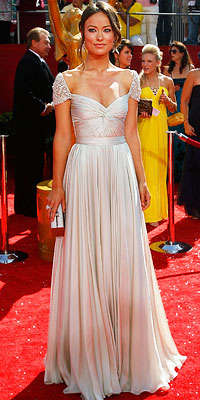
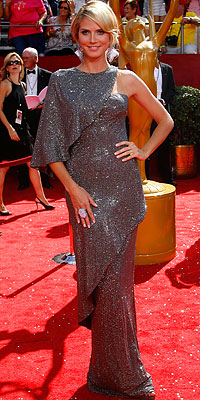 3. Get a hairstyle that can go from day to night. Heidi Klum works this loosely pulled back pony tail on the red carpet . . .
3. Get a hairstyle that can go from day to night. Heidi Klum works this loosely pulled back pony tail on the red carpet . . . 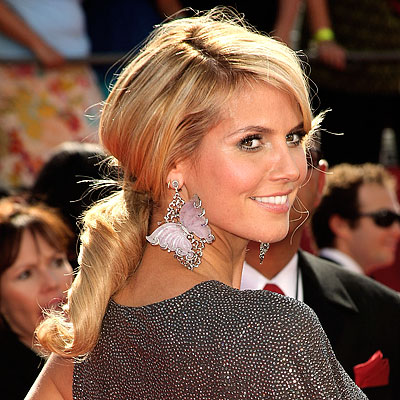 . . . then releases it into vintage glam curls for the after parties. Whereas Marcia Cross still looks a bit uptight and formal, Heidi's ready to schmooze and dance. I'll totally be stealing this look to transition from the ceremony to the reception.
. . . then releases it into vintage glam curls for the after parties. Whereas Marcia Cross still looks a bit uptight and formal, Heidi's ready to schmooze and dance. I'll totally be stealing this look to transition from the ceremony to the reception.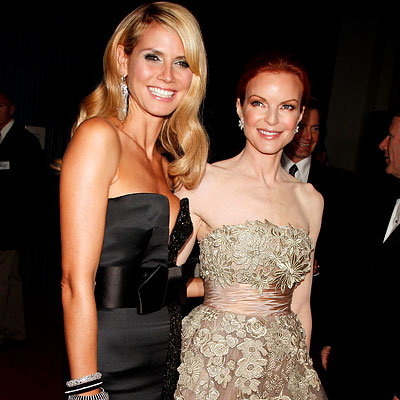 What inspirations or lessons did you take away from the awards shows this year? Will you be working a red carpet look for your wedding day?
What inspirations or lessons did you take away from the awards shows this year? Will you be working a red carpet look for your wedding day?